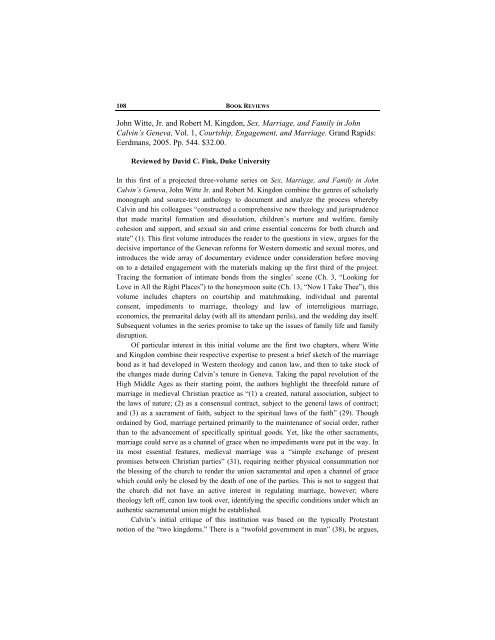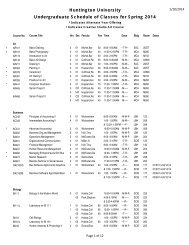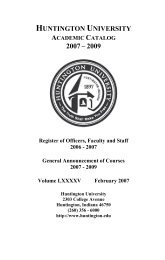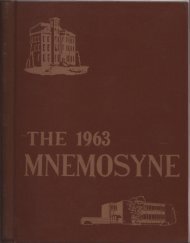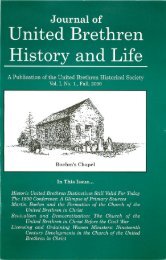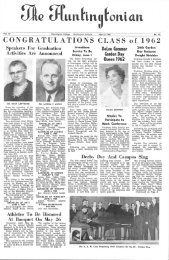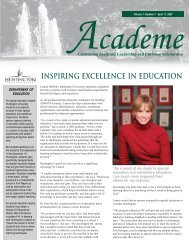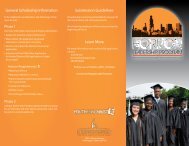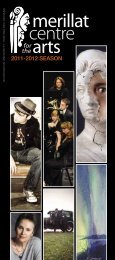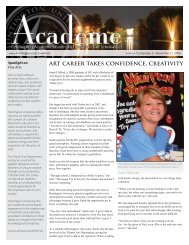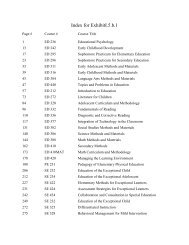Gillian Clark, Christianity and Roman Society - Huntington University
Gillian Clark, Christianity and Roman Society - Huntington University
Gillian Clark, Christianity and Roman Society - Huntington University
You also want an ePaper? Increase the reach of your titles
YUMPU automatically turns print PDFs into web optimized ePapers that Google loves.
108 BOOK REVIEWS<br />
John Witte, Jr. <strong>and</strong> Robert M. Kingdon, Sex, Marriage, <strong>and</strong> Family in John<br />
Calvin’s Geneva, Vol. 1, Courtship, Engagement, <strong>and</strong> Marriage. Gr<strong>and</strong> Rapids:<br />
Eerdmans, 2005. Pp. 544. $32.00.<br />
Reviewed by David C. Fink, Duke <strong>University</strong><br />
In this first of a projected three-volume series on Sex, Marriage, <strong>and</strong> Family in John<br />
Calvin’s Geneva, John Witte Jr. <strong>and</strong> Robert M. Kingdon combine the genres of scholarly<br />
monograph <strong>and</strong> source-text anthology to document <strong>and</strong> analyze the process whereby<br />
Calvin <strong>and</strong> his colleagues “constructed a comprehensive new theology <strong>and</strong> jurisprudence<br />
that made marital formation <strong>and</strong> dissolution, children’s nurture <strong>and</strong> welfare, family<br />
cohesion <strong>and</strong> support, <strong>and</strong> sexual sin <strong>and</strong> crime essential concerns for both church <strong>and</strong><br />
state” (1). This first volume introduces the reader to the questions in view, argues for the<br />
decisive importance of the Genevan reforms for Western domestic <strong>and</strong> sexual mores, <strong>and</strong><br />
introduces the wide array of documentary evidence under consideration before moving<br />
on to a detailed engagement with the materials making up the first third of the project.<br />
Tracing the formation of intimate bonds from the singles’ scene (Ch. 3, “Looking for<br />
Love in All the Right Places”) to the honeymoon suite (Ch. 13, “Now I Take Thee”), this<br />
volume includes chapters on courtship <strong>and</strong> matchmaking, individual <strong>and</strong> parental<br />
consent, impediments to marriage, theology <strong>and</strong> law of interreligious marriage,<br />
economics, the premarital delay (with all its attendant perils), <strong>and</strong> the wedding day itself.<br />
Subsequent volumes in the series promise to take up the issues of family life <strong>and</strong> family<br />
disruption.<br />
Of particular interest in this initial volume are the first two chapters, where Witte<br />
<strong>and</strong> Kingdon combine their respective expertise to present a brief sketch of the marriage<br />
bond as it had developed in Western theology <strong>and</strong> canon law, <strong>and</strong> then to take stock of<br />
the changes made during Calvin’s tenure in Geneva. Taking the papal revolution of the<br />
High Middle Ages as their starting point, the authors highlight the threefold nature of<br />
marriage in medieval Christian practice as “(1) a created, natural association, subject to<br />
the laws of nature; (2) as a consensual contract, subject to the general laws of contract;<br />
<strong>and</strong> (3) as a sacrament of faith, subject to the spiritual laws of the faith” (29). Though<br />
ordained by God, marriage pertained primarily to the maintenance of social order, rather<br />
than to the advancement of specifically spiritual goods. Yet, like the other sacraments,<br />
marriage could serve as a channel of grace when no impediments were put in the way. In<br />
its most essential features, medieval marriage was a “simple exchange of present<br />
promises between Christian parties” (31), requiring neither physical consummation nor<br />
the blessing of the church to render the union sacramental <strong>and</strong> open a channel of grace<br />
which could only be closed by the death of one of the parties. This is not to suggest that<br />
the church did not have an active interest in regulating marriage, however; where<br />
theology left off, canon law took over, identifying the specific conditions under which an<br />
authentic sacramental union might be established.<br />
Calvin’s initial critique of this institution was based on the typically Protestant<br />
notion of the “two kingdoms.” There is a “twofold government in man” (38), he argues,


